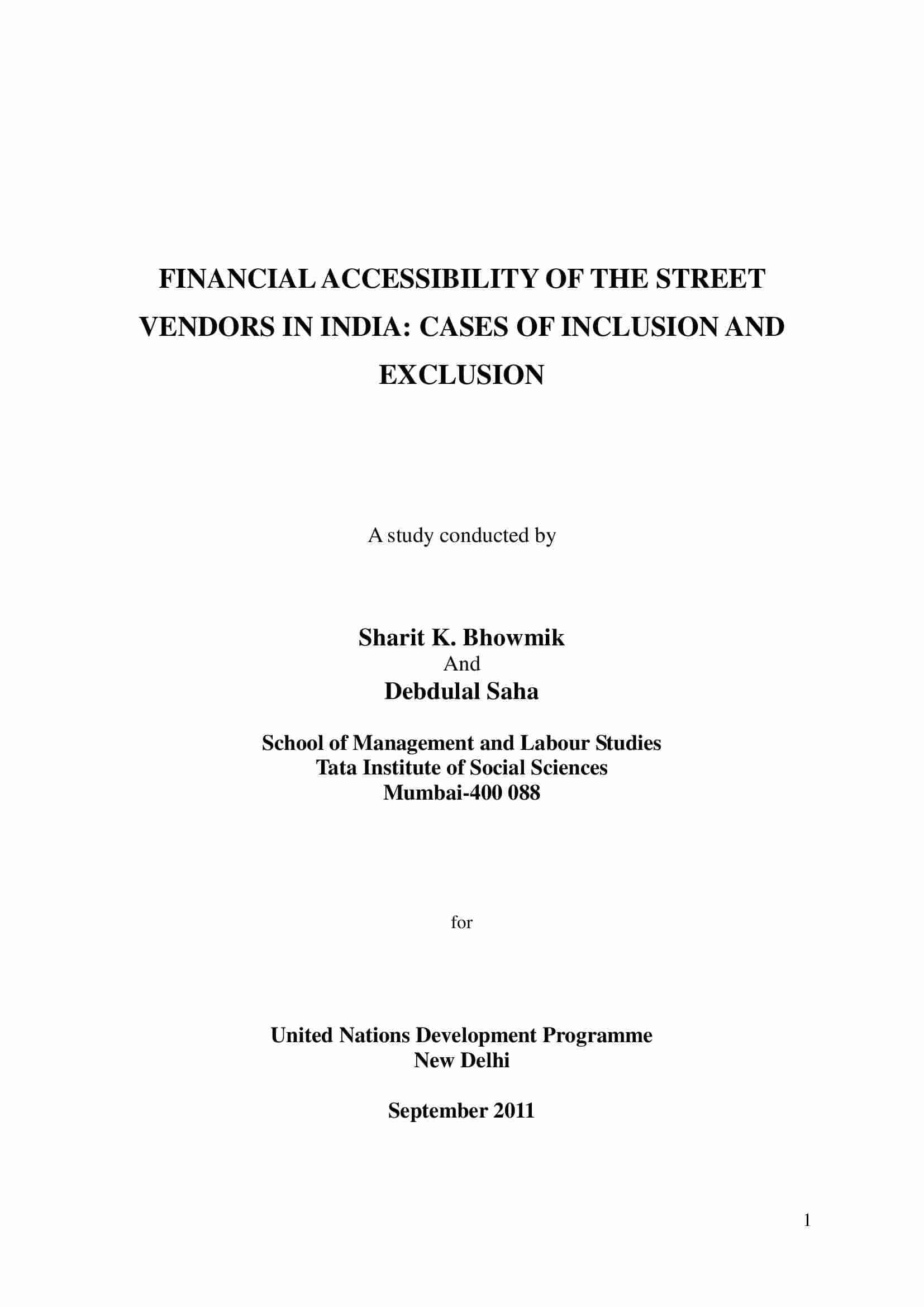Financial Accessibility of the Street Vendors in India: Cases of Inclusion and Exclusion
From the Executive Summary: "Street vendors are one of the most marginalised, poor as well as vulnerable sectors of the urban informal labour market. While street vending is seen as a thriving business given their capacity to adapt to the changing demands of urban society, this category of self-employed persons is yet to receive legal legitimacy. Several factors contribute to this situation, prime among them being access to formal credit. While it can be argued that financial inclusion and inclusive growth can together generate self-employment opportunities and alleviate poverty and unemployment, easy access to formal credit institutions is the stumbling block. This study was conducted by the Tata Institute of Social Sciences (TISS) in collaboration with the United Nations Development Programme (UNDP). Its objective was to highlight some of the problems faced by street vendors in conducting their daily business and examine how financial institutions, especially those in the the banking sector, can include street vendors in their credit policies."
View list of all: Research Reports

